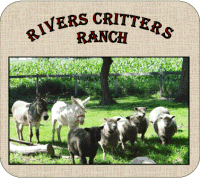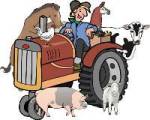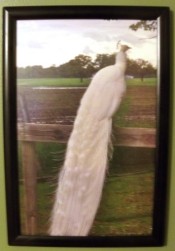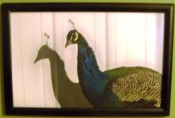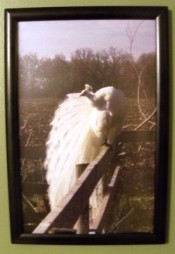Thinking of being a Shepherd? (Part 1)
Before you begin looking, give serious thought as to the reason are contemplating getting into the shepherding arena. Is this a 4-H or Future Farmer’s of America project for the kids or do you want to participate in showing the sheep at various fairs? Perhaps you wish to be a breeder or maybe you have an orchard, vineyard or hobby farm that you wish someone else to mow and fertilize. Or, you could simply just want a companion. Whatever the reason, it is necessary for you to determine it because your reason will guide you as to what to buy.
If you are going into breeding or if you wish to show the sheep, familiarize yourself with all aspects of their breed standard before you make your purchase as you will need to know their basic conformation requirements to make quality decision. You also need to investigate other sources of information and decide which registry you will be participating in because not all registries will accept sheep that are registered with another registry. In fact, it would be prudent to contact the prospective registry (or registries) and have them send you their current information before you go shopping.
However, if you are looking for a companion that also mows and fertilizes, I would suggest the Olde English Babydolls. They are essentially miniature Southdown’s. But, let me caution you that these animals are very social and they will get lonely if you only purchase one. They are a docile breed that is sturdy and easy to care for and make great companions for young and old alike. Their small size requires less acreage per animal compared to other breeds so they are more economical to maintain. Also, you should note that the males are far friendlier than the females. The females are nurturing mothers which cause them to be cautious. We breed these precious little ones on our farm and always have difficulty parting with them. However, if you are not interested in breeding and just want lawn ornaments and companionship you would be very happy with a couple of Whethers. Another bonus is that this breed does not girdle trees so if you have an orchard or vineyard this is the breed you are looking for.
Finally, if you are looking for meat sheep, I am not sure that the Olde English Babydolls are the Sheep for you. While this breed was originally intended for meat and developed to provide a meaty and tasty carcass, they are small and do not yield as much meat as their Southdown cousins.
Here are a few pointers to help you choose healthy sheep.
- Prospective sheep should be alert and thriving.
- The flock you are purchasing from should be in good health. Watch for runny, red or damaged eyes, runny noses and coughs or wheezing. These may be signs of a sick flock.
- Check the feet of your prospective addition. Make sure the hooves are trimmed and not over grown. And, verify that there has been no footrot in the flock.
- If buying an older ewe check the head and neck to verify that there are no lumps or swelling under the chin, Do not choose a ewe that is too thin (remember, all ewes will look thin after having a lamb in which case thin is okay) or excessively fat. Also, check the utter – if it is lumpy it most likely has had an infection (Mastitis) and may have a blind utter and unable to produce milk.
- Check the fleece for keds or lice. Usually the wool will look raggy. If you are in love with the sheep, remember, this can be treated but you must keep it separate from the rest of the flock when you bring the sheep home until the treatment is complete (or treat the rest of your flock).
- Check the jaw to make sure that the lower jaw is not undershot or overshot.
- If the sheep has an extended belly, inquire about the breeders worming schedule as it may mean that worms are a problem. Again, this condition can be treated.
Other questions to ask the breeder:
- Vaccinations – what did they give, how much, and when?
- Worming – what did they give, how much, and when?
- What kind of feed – can you have some to take home to transition them to what is available in your area?
- What was the birth date?
- Was it a twin, triplet or single birth?
- Health history and age of the parents. I like to look at the parents to ascertain an approximate size a lamb will be when it is grown.
- If you are going into breeding ask for the linage of the parents.
One final note, don’t rush the process. Be sure of your decision because you will have to provide shelter, feed and water for you flock in all types of weather.
Next month we will explore all that you will need to do before you bring your flock home including, shelter, bedding, water, feed, and pasture.
Looking for more information? Visit Hobby Farm Animals or our site dedicated to Olde English Babydoll Sheep
|
